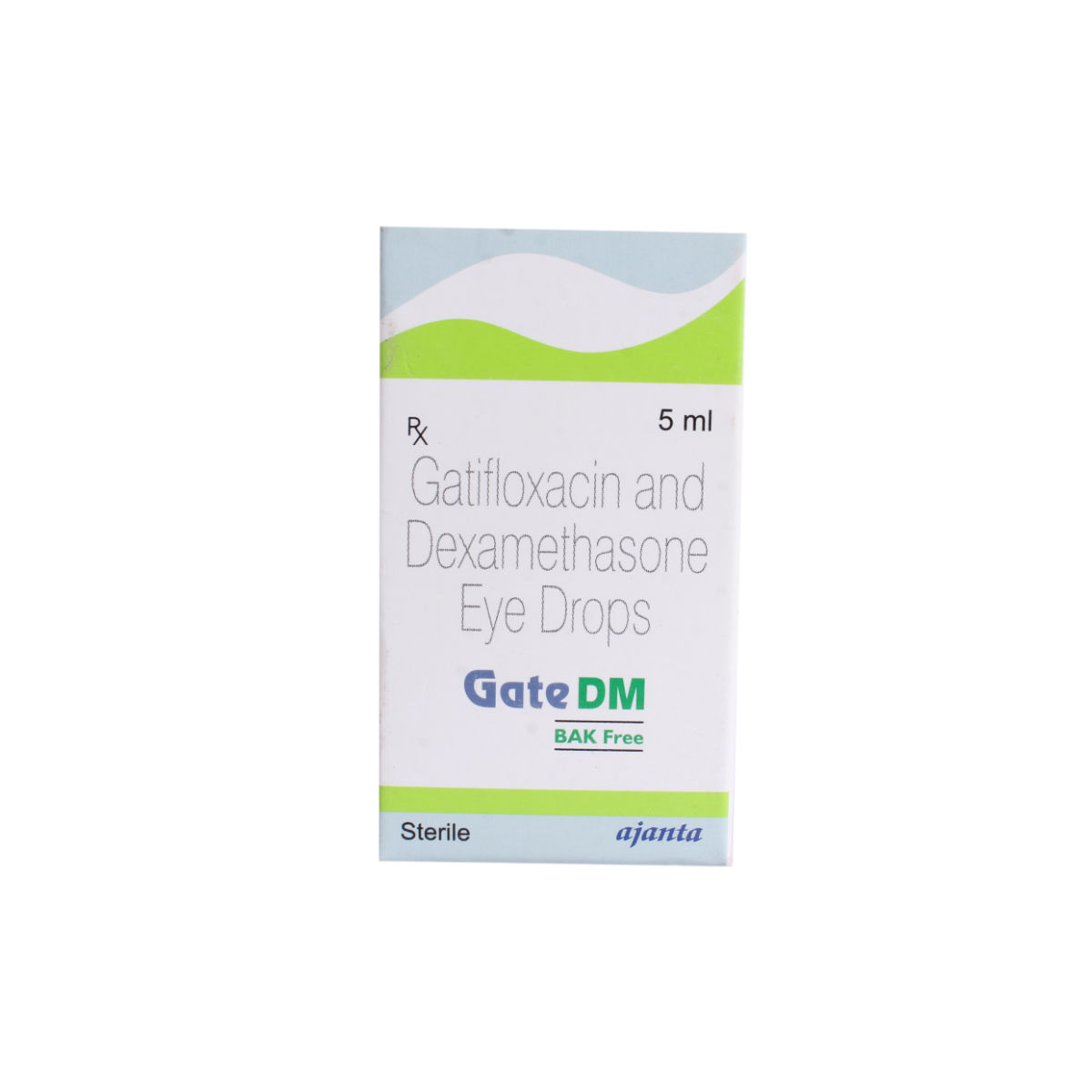Wigat D Eye Drop
₹35.1*
MRP ₹39
10% off
₹33.15*
MRP ₹39
15% CB
₹5.85 cashback(15%)
Free Delivery
With Circle membership
(Inclusive of all Taxes)
This offer price is valid on orders above ₹800. Apply coupon PHARMA10/PHARMA18 (excluding restricted items)
Know Your Delivery Time
Provide Delivery Location

Whats That

Secure Payment

India's Most Trusted Pharmacy

Genuine Products
Composition :
Consume Type :
Return Policy :
About Wigat D Eye Drop
Wigat D Eye Drop belongs to a group of medications called ‘Antibiotics and Corticosteroids’ used in the treatment of bacterial eye infections or eye discomfort, especially in patients who have undergone eye surgeries. It also decreases the risk of eye infections such as conjunctivitis (inflammation of the conjunctiva) and other inflammatory conditions of the eye (cornea, iris, and connective tissue) in postoperative patients.
Wigat D Eye Drop is a combination of two medicines: Gatifloxacin and Dexamethasone. Gatifloxacin is an antibiotic that acts by interfering with the formation of essential proteins required for bacterial growth. Dexamethasone is a steroid that reduces inflammation and symptoms associated with infection such as redness and irritation. It works by inhibiting the chemicals such as prostaglandins that cause inflammation.
You should take this medicine as prescribed by your doctor. The common side-effects of Wigat D Eye Drop are red eyes, eye pain, dry eye, watery eyes, and change in taste. Eye drops may also cause temporary blurred vision. In addition, it may cause inflammation of the cornea (clear outer layer of the eye), which is a serious side-effect and may cause vision problems. If any of these side-effects persist, consult your doctor immediately.
Do not take Wigat D Eye Drop if you are allergic to Gatifloxacin, Dexamethasone, other fluoroquinolone antibiotics, or any contents of it. Before taking Wigat D Eye Drop, inform your doctor if you are diagnosed with any fungal infections, viral infections such as herpes simplex or varicella, or parasitic infections such as amoebiasis. Do not use Wigat D Eye Drop if you have tuberculosis, damaged cornea, ulceration, open lesions with incomplete formation of the covering tissue, and increased pressure inside the eye.
Uses of Wigat D Eye Drop
Medicinal Benefits
Wigat D Eye Drop is a combination of two medicines: Gatifloxacin and Dexamethasone. Gatifloxacin is a fluoroquinolone and broad-spectrum antibiotic. It can act against both gram-positive and gram-negative bacteria. It acts by interfering with the formation of essential proteins required for bacterial growth. Dexamethasone is a corticosteroid that has anti-inflammatory properties and acts by inhibiting the chemicals such as prostaglandins that cause inflammation. It also reduces symptoms associated with infection such as redness and irritation of the eye and also decreases the risk of infections.
Side Effects of Wigat D Eye Drop
- Red eyes
- Eye pain
- Blurred vision
- Dry eye
- Excessive watery eyes
- Change in taste
- Inflammation of the cornea of the eye (severe)
Directions for Use
Storage
Drug Warnings
Before taking Wigat D Eye Drop, inform your doctor if you have vision problems, severe pain in the eye, glaucoma (raised pressure in the eye), eye injury, or have undergone eye surgery or using any other eye drops or eye ointment. Inform your doctor immediately if you notice swelling or weight gain around the trunk or in the face, as it may be a sign of Cushing’s syndrome (high levels of cortisol in the body). Do not use eye drops for longer than recommended by your doctor as it may suppress adrenal gland function and may increase the risk of cataracts (clouding of the eye) and also increases the risk of a second infection.
Therapeutic Class
Diet & Lifestyle Advise
- Sleep for at least six to eight hours to rejuvenate your eyes in a natural way.
- Wash your eyes with clean water at least two to three times a day
- Manage stress, eat healthily, drink plenty of water, exercise regularly, and get plenty of sleep.
- Avoid alcoholic beverages as it can make you dehydrated and affect your sleep. This effect can also affect your body’s ability in fighting off infections.
- Reduce screen time (by avoiding watching tv, or phone) and use sunglasses while going out into the sunlight.
Habit Forming
How Wigat D Eye Drop Works
What if I have taken an overdose of Wigat D Eye Drop
Alcohol
Caution
There is limited information on how alcohol consumption affects Wigat D Eye Drop. Please consult your doctor before starting.
Pregnancy
Caution
Please consult your doctor before using Wigat D Eye Drop if you are pregnant or planning to conceive.
Breast Feeding
Caution
There is limited information on how Wigat D Eye Drop affects breastfeeding. Please consult your doctor before taking Wigat D Eye Drop if you are a breastfeeding mother.
Driving
Caution
Wigat D Eye Drop may cause side effects like blurry vision, affecting your driving ability. Do not drive or operate machinery in such cases. Drive only when you are alert and have clear vision.
Liver
Safe if prescribed
Wigat D Eye Drop can be used for treating eye infections in patients with liver diseases.
Kidney
Safe if prescribed
Wigat D Eye Drop can be used for treating eye infections in patients with kidney diseases.
Children
Caution
Wigat D Eye Drop should be used with caution in children. It is not recommended for use in newborns.
Country of origin
Manufacturer/Marketer address
Author Details
We provide you with authentic, trustworthy and relevant information
FAQs
Disclaimer
Product Substitutes









